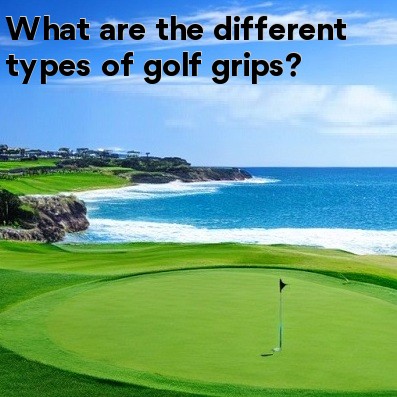
In golf, What are the different types of golf grips?
When it comes to golf, the grip is one of the most fundamental aspects of the game. It is the only contact point between the golfer and the club, and having the right grip can make a significant difference in the quality of your shots. There are several different types of golf grips, and each has its own advantages and disadvantages. Let's take a look at them:
-
The Vardon (Overlap) Grip:
The Vardon Grip is the most popular and widely used grip in golf. It is named after Harry Vardon, a legendary British golfer. In this grip, the little finger of the trailing hand overlaps with the index and middle fingers of the lead hand. This grip provides stability and control, making it ideal for most golfers.
-
The Interlocking Grip:
The Interlocking Grip is another popular grip used by many golfers, especially those with smaller hands or weaker grips. In this grip, the little finger of the trailing hand hooks into the space between the index and middle fingers of the lead hand, creating a more secure connection between the hands.
-
The Ten Finger (Baseball) Grip:
The Ten Finger Grip is often referred to as the “Baseball Grip” because it resembles the way a baseball player holds a bat. It is the most natural grip and allows for greater wrist hinge and control. This grip is commonly used by beginners, juniors, and individuals with hand issues.
-
The Reverse Overlap Grip:
The Reverse Overlap Grip is a variation of the Vardon Grip, with the little finger of the lead hand resting on top of or overlapping the index and middle fingers of the trailing hand. This grip is favored by many professional golfers as it promotes a more consistent release of the club.
-
The Neutral Grip:
The Neutral Grip is a grip where the hands are placed on the club in a way that neither promotes a hook nor a slice. The palms of both hands should be facing each other, and the “Vs” formed by the thumb and index finger of each hand should point towards the center of the body. This grip is best for golfers who want to minimize the amount of hand action during the swing.
It's important to note that not all grips will work for every golfer. The type of grip you choose should depend on your comfort and the type of shot you want to hit. Experiment with different grips and see which one feels the most natural and helps you achieve better results on the course!
Remember, having a proper golf grip is crucial in order to have good control over the club and achieve consistent and accurate shots. So, take the time to find the grip that suits you best and practice it regularly to improve your game!





